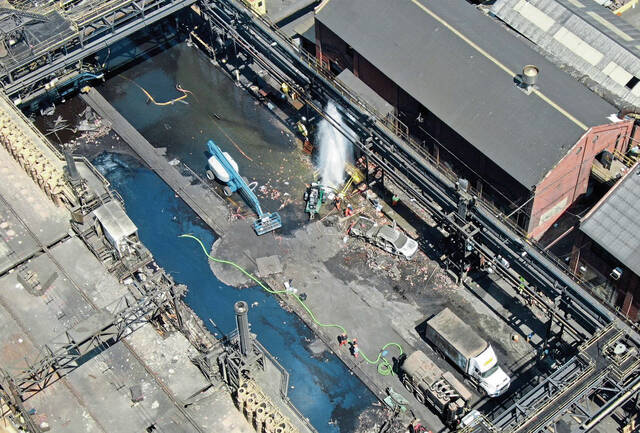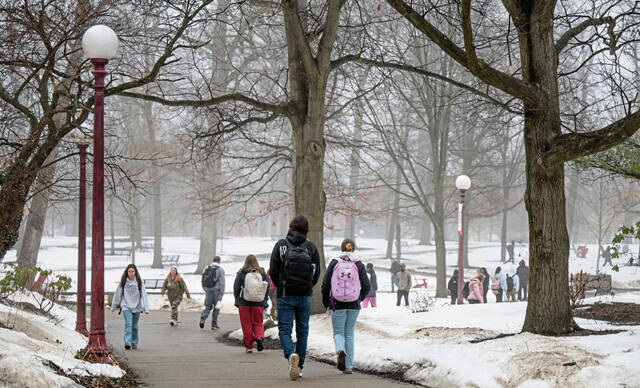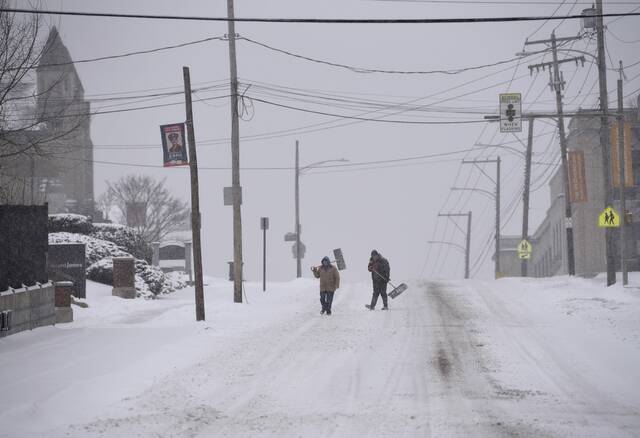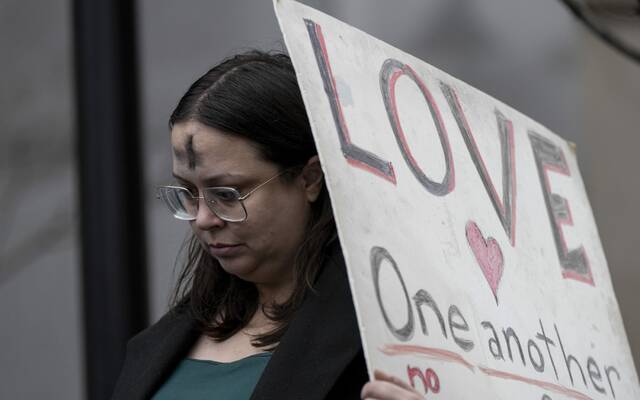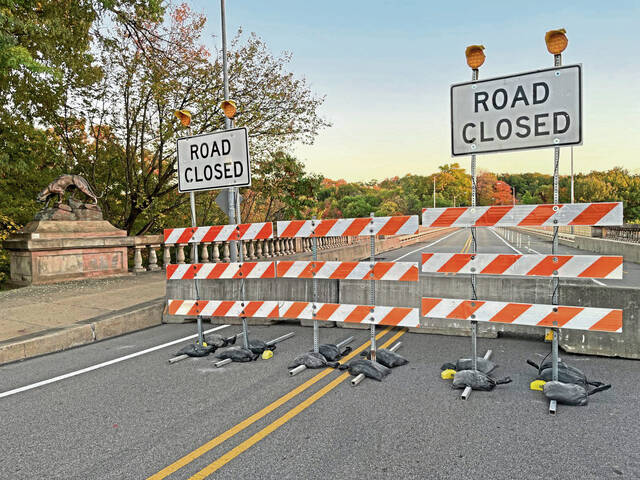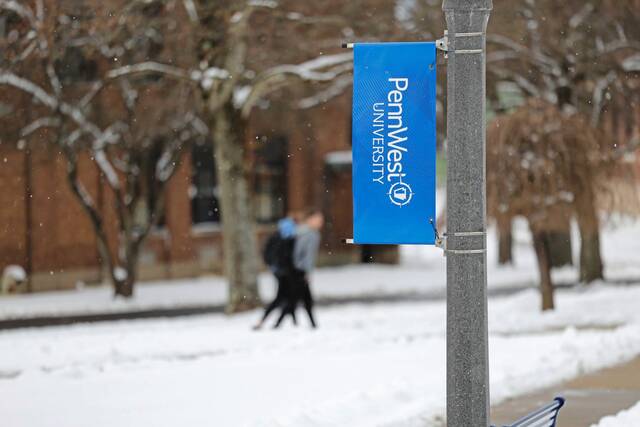The Chemical Safety and Hazard Investigation Board’s probe into the deadly explosion at the Clairton Coke Works could take a year or more and will include worker interviews, careful examination of daily operations and a cinematic recreation of the blast.
The aim is to trace events leading up to the explosion Monday that killed two people and injured 10 others, according to Bill Steiner, the board’s investigator-in-charge. U.S. Steel said Friday that preliminary findings indicated coke oven gas ignited when a valve failed during routine maintenance.
When the board wraps up its probe, the independent federal agency will issue findings geared not just toward U.S. Steel, but all coke makers.
“We’re not here to find fault or liability,” Steiner told TribLive Friday. “We’re here to find the cause of the incident and make recommendations such that any type of incident like this can be prevented in the future.”
The board’s recommendations are nonbinding; it lacks any enforcement or regulatory power.
Most companies adopt them anyway, according to Jordan Barab, a board official from 2002 to 2007 and an advocate for worker safety.
Nearly 500 incidents have been reported to the agency since the start of 2020, including 12 in Pennsylvania. Texas, with its high concentration of petrochemical plants, oil refineries and chemical manufacturing facilities, leads the pack with roughly 100 events.
Only the most severe, like the one in Clairton, get a full investigation. These tend to take one to two years.
“It’s a big decision by the board when they deploy a team,” Steiner said.
Steiner and six other investigators first met with U.S. Steel and the United Steelworkers union Wednesday to sketch out a plan for the probe. So far, debris has prevented investigators from examining parts of the scene, according to Steiner, but his team hopes to take a closer look soon.
The company has been cooperative and willing to produce witnesses, he said.
Amanda Malkowski, a U.S. Steel spokesperson, said the company and the union are working in coordination with the board as well as with the Occupational Safety and Health Administration and the Allegheny County Fire Marshal to get to the bottom of the explosion.
Nippon Steel, the Japanese firm that recently bought U.S. Steel for almost $15 billion, has also provided experts, she said.
The probe will culminate in a written report as well as a video, which Steiner described as “one of the most famous things about CSB.” These videos use documentary-style narration over computer animations of malfunctioning equipment, fleeing workers and, often, massive explosions.
Some garner millions of views on YouTube. The most popular, a 21-minute summary of the 2018 Pryor Trust gas well blowout in Pittsburg County, Oklahoma, has been seen more than 3.9 million times.
An agency in limbo
The safety board is toiling under a presidential administration that would prefer it not exist.
A White House budget proposal seeks to take the agency’s annual allocation from $14 million to nothing starting in October, effectively killing it as part of “plans to move the nation toward fiscal responsibility.” The agency’s emergency fund of about $800,000 would be set aside to wind down operations if President Donald Trump gets his way.
“Trump has always wanted to get rid of this agency and nobody can quite figure out why, because it actually has a fair degree of industry support,” said Barab, the former safety board official. “Chemical companies are impacted, too. They have no interest in their plants blowing up.”
The American Chemistry Council, for one, has expressed support for the agency in face of threats to its funding.
Federal lawmakers also don’t appear nearly as down on the agency as Trump.
Congress responded to attempts at slashing board funding under the first Trump administration by maintaining or even increasing it. This time around, the House is proposing to lower board funding to $8 million, while the Senate version would leave it unchanged.
At this point, Barab views it as unlikely Trump will get his way.
United Steelworkers District 10 Director Bernie Hall described the agency as vital to preventing catastrophic workplace incidents. He also criticized Trump’s efforts to defund it as an attack on workplace safety.
“The Aug. 11 incident at Clairton was just one of far too many reminders that we have a long way to go until all workplaces are safe and free from deadly hazards,” Hall said. “That’s our goal — and one that should be shared by every elected official at all times, not just after a workplace fatality.”
The White House dismissed as irrelevant questions about whether its effort to zero out the agency’s budget would impact ongoing investigations.
Shauna Lawhorne, a safety board spokesperson, declined comment on that, but Steiner offered some insight into the agency’s approach.
“The agency has told me, regardless of the funding, we will continue to work on the investigation until we’re told to stop,” Steiner said.


